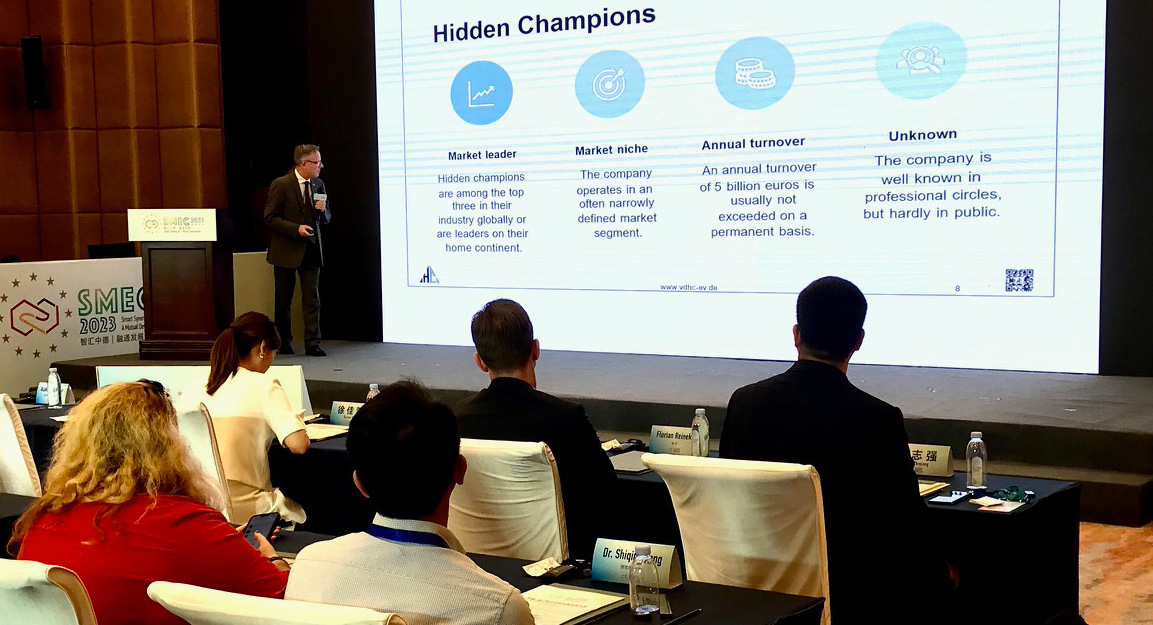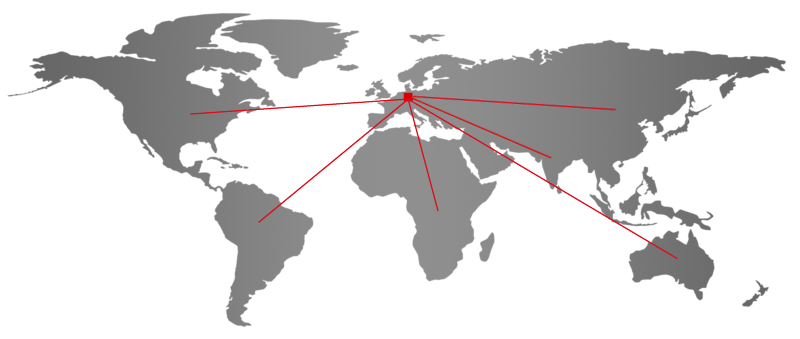Hidden
Champions
Market leader
Market niche
Annual sales
Unknown
From their emergence in the 1980s - until today...</u
Focus on medium-sized, little-known companies: In the 1980s, a group of successful German companies were identified that were global leaders in their niche markets.
The book “Hidden Champions – Aufbruch nach Globalia“, published in 1996, presented the corresponding research results and the success factors of these companies.
Recognition by the business world: The concept quickly gained in importance and was positively received by companies, politicians and academics.
Further development of the theory: Over the years, the concepts of hidden champions have been further refined and adapted in order to do justice to the changing global markets.
International dissemination: The idea of hidden champions also found favor outside Germany and was applied to other countries and regions.
Influence on economic policy: The findings of hidden champions have been and are still being used by governments and organizations to develop strategies to promote SMEs.
Hidden champions are a key driver of Germany’s export strength.
Of more than 4,000 hidden champions worldwide, around 1,700 are based in Germany. The three German-speaking countries of Germany, Austria and Switzerland account for around 55 percent of the world’s hidden champions.
Many of their products are “inconspicuous”, i.e. they are used in the service creation process or are incorporated into other end products. Some hidden champions deliberately want to remain unknown.
They secure prosperity and jobs in the country and generate a large part of the export power.


Hidden champions worldwide <=> Germany
Hidden champions are primarily a phenomenon in German-speaking countries. Only in Germany, Austria and Switzerland do these medium-sized, globally active market leaders exist in large numbers.
The urge to internationalize/globalize is in the blood of German-speaking entrepreneurs and lives on to this day. They start internationalizing earlier than entrepreneurs in other countries. This enables them to benefit from global growth trends and strengthen their market position.
Germany has a long tradition of SMEs, with many family-run companies that have often been successful for generations. These companies often have a stable foundation and a high degree of continuity in management, which contributes to the development of hidden champions.
German products and services are often associated with high quality, precision and reliability. This reputation contributes to the fact that German hidden champions are valued worldwide and can hold their own in their niche markets.
Germany is also known for its technological expertise and engineering skills.


